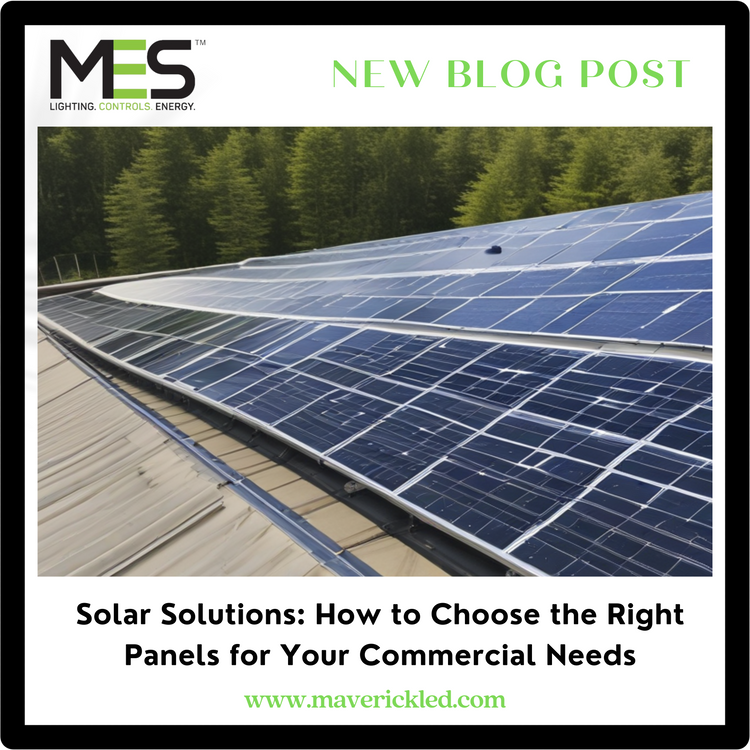As businesses increasingly embrace sustainable energy practices, solar power has emerged as a viable and cost-effective solution for meeting commercial energy demands. However, selecting the appropriate solar panels for your commercial installation is crucial to ensure optimal performance, efficiency, and return on investment. In this article, we will explore the key factors to consider when choosing solar panels for your commercial needs.
Panel Efficiency and Power Output
Panel efficiency is a critical consideration, as it directly impacts the electricity generated per square foot of panel area. Monocrystalline silicon panels typically offer higher efficiency rates than polycrystalline or thin-film panels, but they come at a premium cost. Higher efficiency panels can be particularly advantageous for commercial installations with limited roof space, as they can generate more power within a smaller footprint.
Additionally, the panel's wattage rating is an important factor, as it determines the overall power output. Commercial installations often require higher-wattage panels to meet substantial energy demands, reducing the number of panels needed and potentially lowering installation costs.
Durability and Warranty
Commercial solar panels must withstand harsh environmental conditions, including high winds, heavy snow loads, and extreme temperatures. It is essential to select panels with robust frames, tempered glass, and strong warranties that cover performance and workmanship. Many reputable manufacturers offer 25-year performance warranties and 10-year product warranties, ensuring long-term reliability and protection for your investment.
Temperature Coefficient and Shading Tolerance
The temperature coefficient is a measure of how well a solar panel performs in high-temperature conditions. Panels with a lower temperature coefficient will maintain higher efficiency levels in hot climates, which is particularly important for commercial installations in warm regions.
Shading from nearby buildings, trees, or other obstructions can significantly reduce the output of solar panels. Some panels are designed with bypass diodes or optimizers that minimize the impact of shading on the overall system performance. If your commercial site has potential shading issues, consider panels with better shading tolerance to optimize energy production.
Aesthetics and Branding
For commercial installations, the appearance of solar panels can be an important consideration, especially if they are visible to customers or the public. Some panel manufacturers offer sleek, low-profile designs or customizable options that can align with your company's branding and aesthetic preferences, enhancing the overall visual appeal of your solar installation.
Cost and Return on Investment
While high-efficiency and premium solar panels may have a higher upfront cost, they can provide a better return on investment (ROI) over the system's lifetime due to increased energy production and lower maintenance costs. It is essential to evaluate the total cost of ownership, including installation, maintenance, and projected energy savings, to determine the most cost-effective solution for your commercial needs.
By carefully considering these factors and working with experienced solar professionals, you can select the right solar panels that meet your commercial energy requirements, optimize system performance, and maximize your long-term return on investment, positioning your business as a leader in sustainable energy practices.


